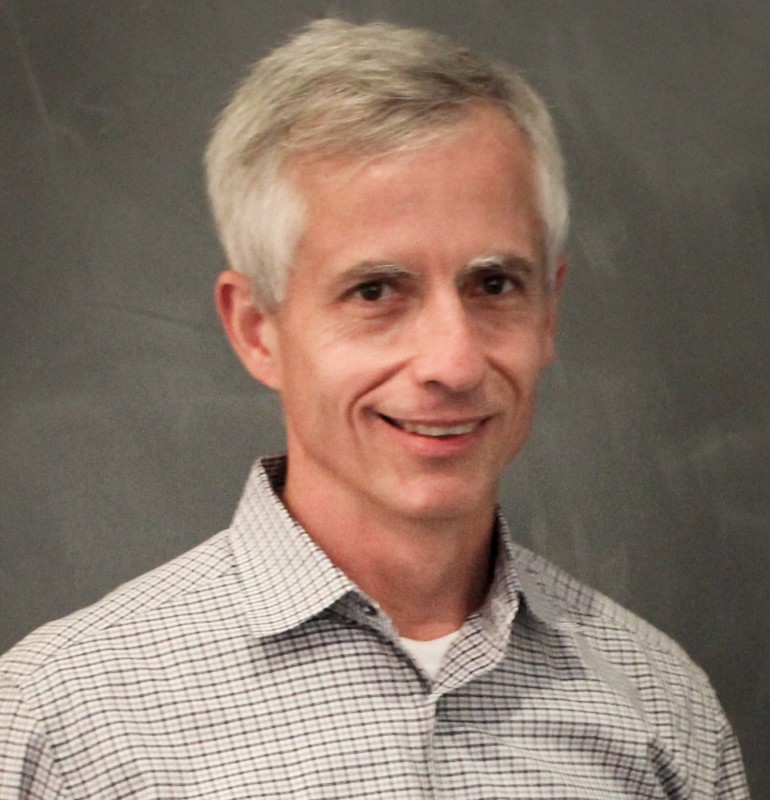Eminent scientist talks about chemistry’s challenges and opportunities:
7 p.m. Thursday, Feb. 16
TACOMA, Wash. – Each semester when University of Puget Sound organic chemistry students spend long hours in the lab creating and then using an important organometallic catalyst, there is one name that keeps coming up: Eric Jacobsen.
Jacobsen, a distinguished Harvard University chemist, was behind the design of a popular catalyst that is relatively easy to make, broadly effective, and robust—and thus ideal for up-and-coming young chemists to make and use.
“This catalyst we use—the students all know it as the Jacobsen catalyst—is known by scientists worldwide,” said Puget Sound Professor of Chemistry John Hanson. “When I mentioned to a couple of groups of students that we might be able to bring Jacobsen to campus, I was overwhelmed by their excitement and enthusiasm.”
On Thursday, Feb. 16, Eric Jacobsen, Sheldon Emory Professor of Organic Chemistry at Harvard University, will come to campus, meet students and faculty, and present a public talk, 7–8:30 p.m., in Schneebeck Concert Hall. The lecture, “Catalysis: A Frontier at the Center of Chemistry,” is free and open to all. The talk will be scientific in nature, but also will address issues that are core to ensuring chemistry’s continued contributions to public health, the environment, and energy needs. A public reception will follow.
Attendees at the talk will hear from a highly-awarded scientist who believes “It is great to be good at what you do, but it is extraordinary if you make everyone around you better as well,” as he told the journal Angewandte Chemie International Edition last year. An admirer of Picasso and a (failed) aspiring shortstop for the New York Yankees, Jacobsen is known for the development of several catalysts that are used widely in industry, including in the synthesis of anti-HIV drugs and other drugs. He summarizes his upcoming talk at Puget Sound as follows:
“There is no doubt that many of the most pressing challenges facing humanity—such as health, the environment, and energy—will have to be addressed using chemistry. But what remains to be discovered or understood in this venerable discipline? Is it a ‘mature’ science, such that the only real opportunities exist in applying known concepts both within the field and at the interface of other disciplines? Or are there genuinely new things to be found about molecular structure and reactivity that can enhance the impact of our field?”
Jacobsen, who joined Harvard University as full professor in 1993, directs a research group of 20–25 graduate students and postdoctoral students dedicated to discovering useful catalytic reactions, and to applying state-of-the-art mechanistic and computational techniques to the analysis of those reactions. Before joining Harvard, Jacobsen taught at University of Illinois. He earned his Bachelor of Science degree at New York University; his doctoral degree at University of California, Berkeley; and he carried out postdoctoral studies at Massachusetts Institute of Technology.
He is being brought to campus thanks to the Jean Dreyfus Boissevain Lectureship for Undergraduate Institutions, offered by The Camille and Henry Dreyfus Foundation. The lecture is part of the Thompson Hall Science and Mathematics Seminars.
University of Puget Sound’s chemistry department, including 10 tenure-line faculty and several visiting assistant professors, has been recognized for its outstanding teaching with four university teaching awards. It offers undergraduate students extensive research opportunities, including summer research grants for individual projects, and operates in modern facilities with advanced equipment.
For directions and a map of the University of Puget Sound campus: pugetsound.edu/directions
For accessibility information please contact accessibility@pugetsound.edu or 253.879.3931, or visit pugetsound.edu/accessibility.
Press photos of Eric Jacobsen can be downloaded from pugetsound.edu/pressphotos.
Photos on page: From top right: Eric Jacobsen; Jacobsen's catalyst and the reaction it catalyzes; Chemistry Professor John Hanson (host to Eric Jacobsen) in a laboratory with a student.
Tweet this: Eric Jacobsen, eminent chemist behind the Jacobsen catalyst @Harvard, speaks @univpugetsound Feb. 16 #chemistry http://bit.ly/2k9J7Cr
Follow us on Twitter! twitter.com/univpugetsound


